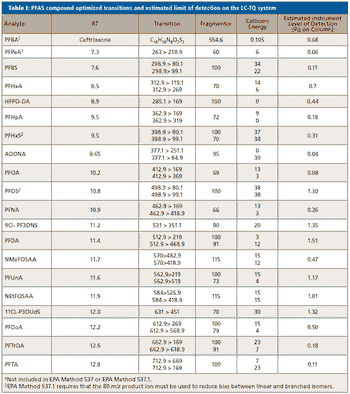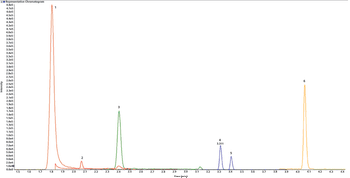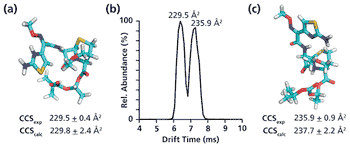
Special Issues
Click the title above to open the Current Trends In Mass Spectrometry October 2019 special issue in an interactive PDF format.

Special Issues
Click the title above to open the Current Trends In Mass Spectrometry October 2019 special issue in an interactive PDF format.

Special Issues
Per- and polyfluoroalkyl substances (PFAS) are found in firefighting foams and consumer products. They are ubiquitous in the environment and are an emerging human health concern. This work compares the 2009 and 2018 revised US Environmental Protection Agency (EPA) LC–MS/MS methods of analysis for PFAS in drinking water.

Special Issues
In the human food supply, public confidence is affected by contaminants and misreporting of nutritional information. This article highlights three events that required development of new mass spectrometry methods, including the detection of pesticides (such as fipronil and glyphosate), and the detection and quantification of fat-soluble vitamins.

Special Issues
In late-stage pharmaceutical development a new generation of high-resolution mass spectrometers and ion mobility mass spectrometers operate as orthogonal separation techniques and have greatly increased the ability to resolve impurities and increase the level of analytical information gained from a single analysis.

Special Issues
In this study, atmospheric pressure photoionization (APPI) is compared to the default ionization method, electrospray ionization (ESI), for solution-phase samples. These mass spectrometry methods are compared and optimized relative to artificial wastewater for the detection and quantitation of pharmaceuticals frequently found as environmental contaminants.